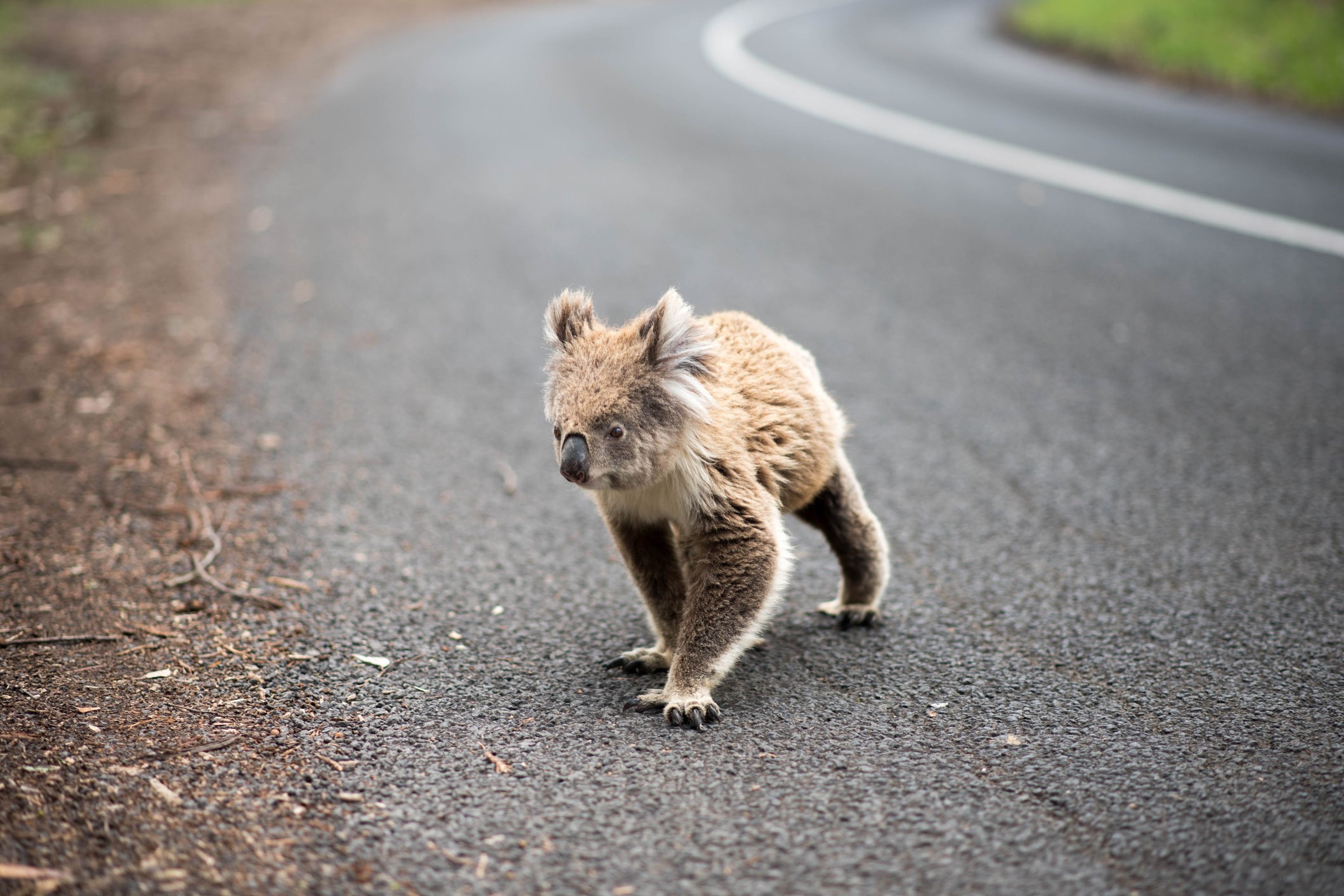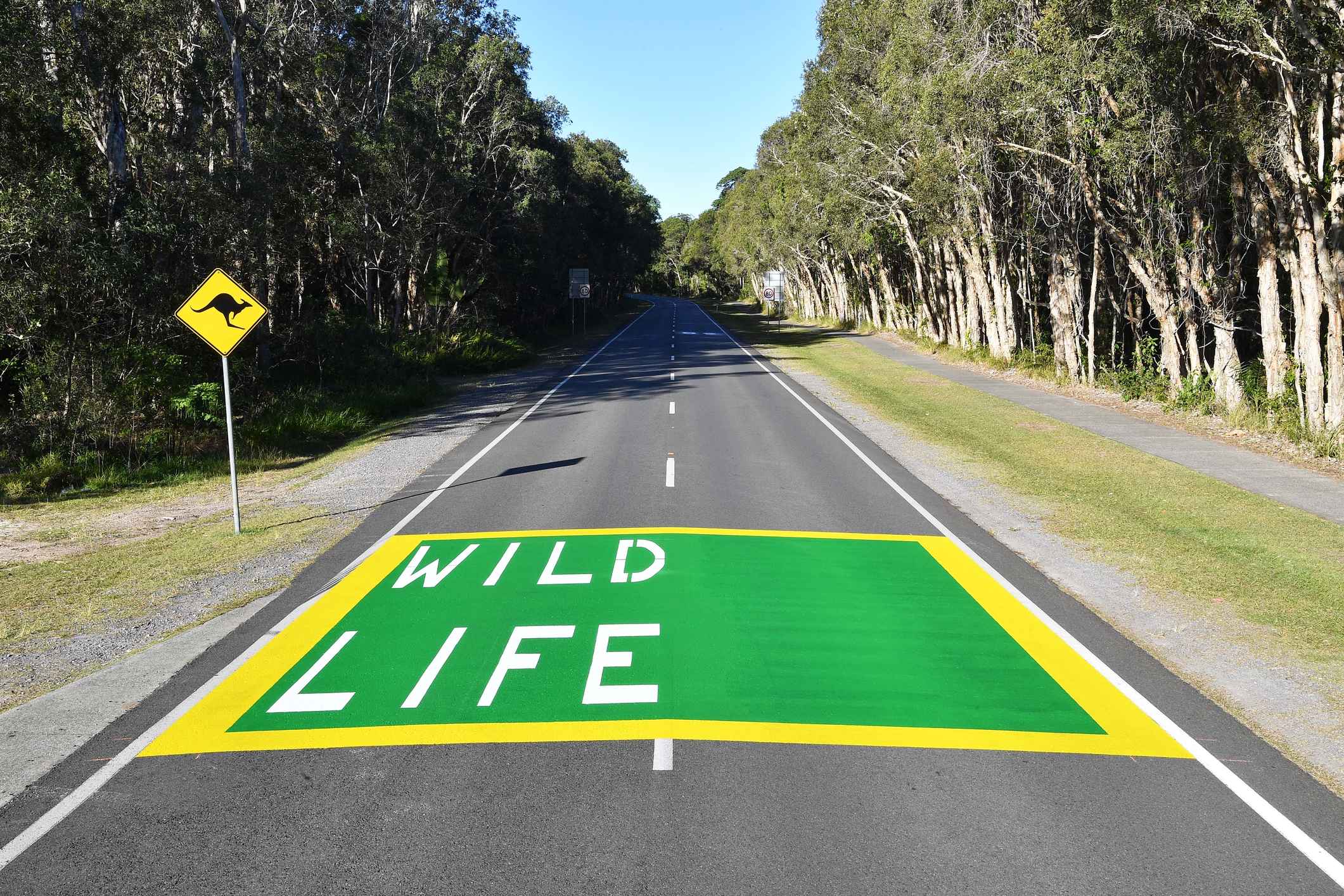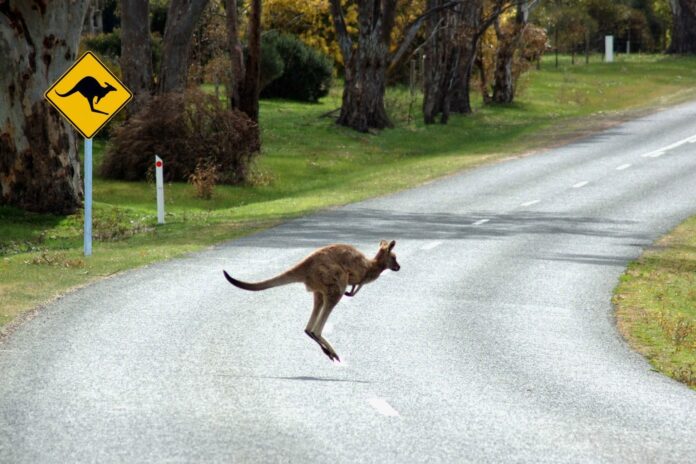Wildlife volunteers are warning motorists to take extra care on Sunshine Coast roads after hundreds of native animals were killed or injured by vehicles during the past year.
Wildlife Volunteers Association Inc (WILVOS) recorded 599 wildlife-vehicle impacts across the region from July 2024 to June 2025 – a 9 per cent increase on the previous year’s 550. Birds, possums and macropods were the most common victims, with echidna collisions also rising during the cooler months.
The group also logged more incidents with unknown causes (1576, up from 1213), many suspected to be vehicle strikes, while hotline calls also jumped (5200 to 5698).
WILVOS vice-chair Donna Brennan urged drivers to be careful, especially during winter.
“Be aware: the wildlife are there, even if not always seen,” she said.
“Drive within the speed limit or well under if it’s late afternoon, night or early morning. In winter, accidents with kangaroos and possums increase. Once the sun goes down the animals come out and this is when people are travelling home from work or sports practice with family.”
Ms Brennan said 45 of the 599 animals recorded as vehicle strike victims were marked as roadkill but that figure was “vastly under-represented”.
She said population growth and busier roads were putting pressure on wildlife.
“The increase of our population has had an impact and drivers don’t drive with due care and attention or to conditions at dawn and dusk,” she said.
“Speeding is an issue on many local roads. But sometimes it is impossible to avoid impact.”

She also pointed to land clearing and domestic pets as major contributors.
“Large-scale developments often aren’t efficient with their spotter/catcher processes. Small landowners are notorious for buying a few acres and turning it into a bowling green until the novelty of the ride-on mower wears off,” she said.
“One eucalypt or other large tree can house so many species in their hollows. And with the increase in population comes the inevitable uncontained pets. Dogs and cat attacks account for numerous native animals’ injuries and deaths.”
Want more free local news? Follow Sunshine Coast News on Facebook, LinkedIn and Instagram, and sign up for our FREE daily news email.
A Department of Transport and Main Roads (TMR) spokesperson said fauna protection was a key consideration in road design.
“We design, construct and maintain roads in accordance with the Fauna Sensitive Road Design Manual, which provides guidance on measures that reduce fauna strikes on our roads,” the spokesperson said.
“TMR uses a range of wildlife safety treatments, such as wildlife signage and fauna exclusion fencing at priority locations.”
The department said contractors alerted authorities such as the RSPCA or local wildlife carers to seek treatment for injured animals when required.
TMR also works with the Queensland Koala Advisory Council; the Department of the Environment, Tourism, Science and Innovation; and local governments to deliver the South-East Queensland Koala Conservation Strategy, which includes measures to identify and reduce animal-vehicle collisions.
Members of the public have been encouraged to report hazards and wildlife incidents on state-controlled roads by calling 13 90 40.
“The department regularly patrols the state-controlled road network to identify hazards, including roadkill, to maintain our roads in a safe and serviceable condition,” the spokesperson said.
“Roadkill incidents on the road shoulder or verge, which are not creating a safety hazard, may not be considered a priority for removal.”

A Sunshine Coast Council spokesperson said the council had received 468 animal callouts from July 2024 to June 2025, compared to 402 requests for the previous 12 months. The top three animals reported were kangaroos (181), wallabies (74) and possums (120).
“Where appropriate and safe to do so, council will assess and remove dead animals from public places, council-managed roads or other council land.”
“Council maps roadkill data, alongside fauna movement modelling data, to make informed decisions on where to prioritise actions that mitigate wildlife-vehicle collisions.”
The data is largely collated from wildlife organisations and residents’ sightings.
The spokesperson detailed several measures that are in place to reduce roadkill.
Macropod temporary signage is rotated to different priority areas on a three-month cycle, remporary Variable Messaging Signage are deployed on Reesville Road, Reesville, for koalas and macropods and, from September, at Landsborough-Maleny Rd, Landsborough and Ilkley Rd, Eudlo.
The council owns and manages 18 rope bridges (for arboreal mammals), nine fauna culverts (for mammals and reptiles) and one land bridge (for mammals and reptiles).
Macropod virtual fencing is installed at four sites across the region (Sugar Bag Road/Sunset Drive, Little Mountain, Sippy Downs Drive, Sippy Downs, Nojoor Road, Mudjimba and Ninderry Road, Ninderry).
Vehicle Activated Signage and pavement treatments (reflective road marking with koala image and the word SLOW) will be installed in eight koala strike hotspots across the region by mid-2026.
“Research indicates that permanent signs with fixed messages lose their impact over time, as drivers become accustomed to them and their behaviour doesn’t change long term. To address this, council is trialling temporary, custom-designed macropod warning signs in areas known for frequent wildlife-vehicle collisions.”
The council purchased a VMS trailer to deploy across the LGA for targeted wildlife/ driver awareness messaging in identified hotspot areas as they arise.
The council has also partnered with Griffith University’s School of Marketing to evaluate the effectiveness of these signs and will adjust the program based on the findings.





